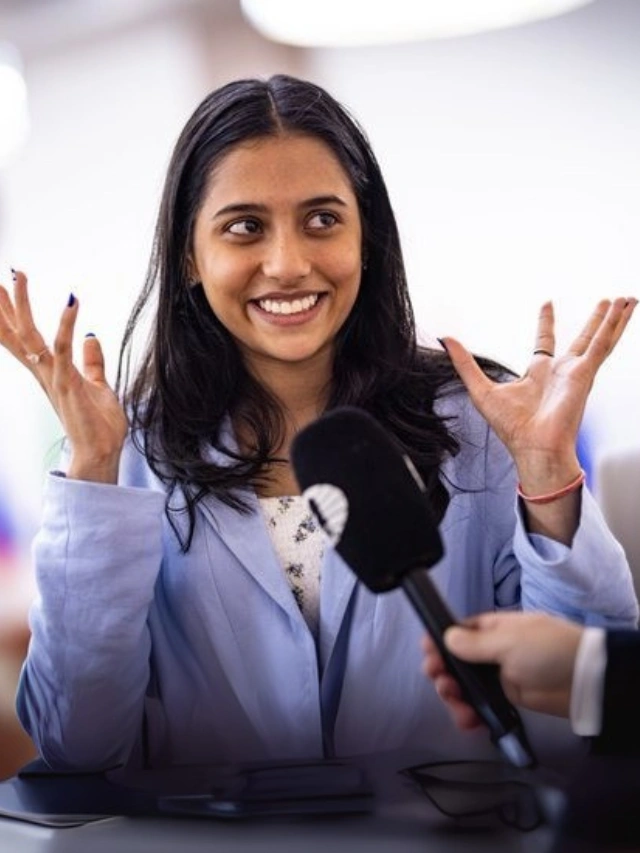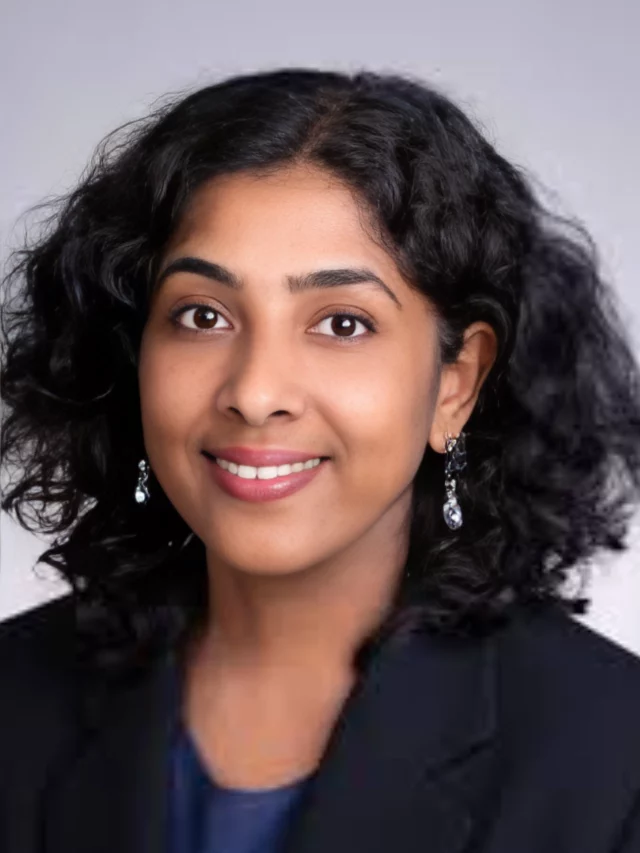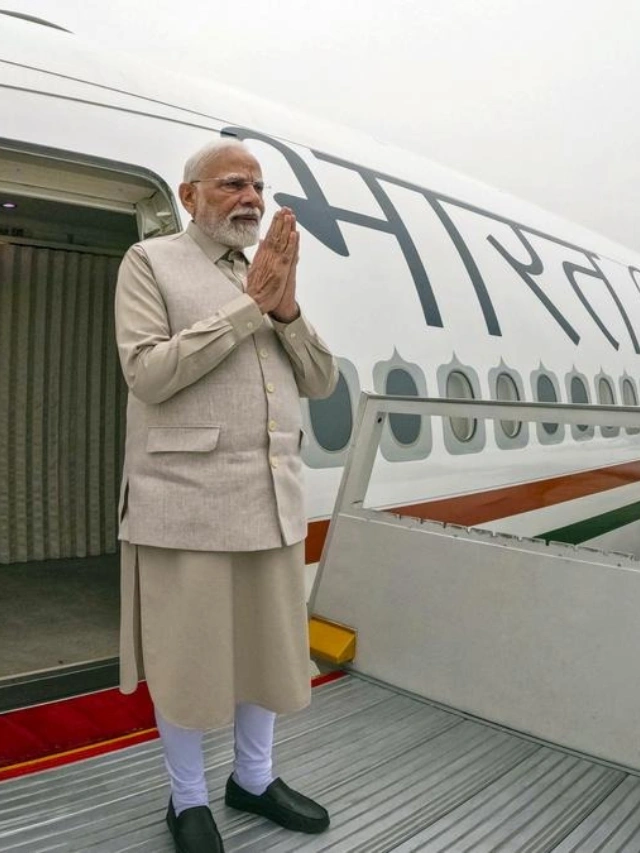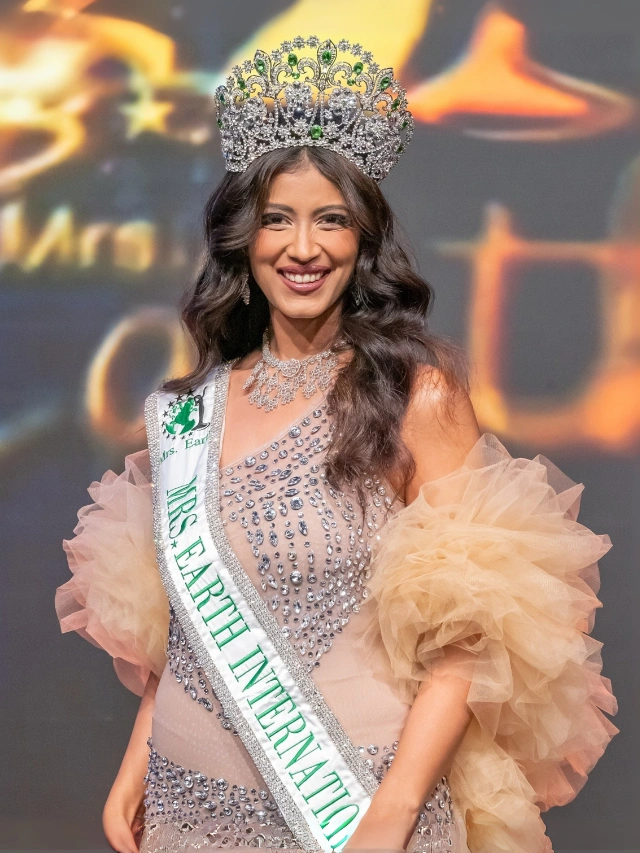Abhinav Bindra
Abhinav Bindra created history as the first Indian to win an individual Olympic gold medal, and remains one of only two Indians with this distinction. His golden moment came at the 2008 Beijing Olympics when he won the men’s 10-meter air rifle event, securing his legacy in sports forever.
His remarkable journey included appearances in five straight Olympic Games from 2000 to 2016. He achieved something no other Indian had done before by holding both World and Olympic titles simultaneously in the men’s 10-meter air rifle event. These prestigious titles came from his victories at the 2006 World Championships and the 2008 Summer Olympics.
CEO’s | Actors | Politicians | Sports Stars
His stellar 22-year career resulted in over 150 medals, with seven medals at the Commonwealth Games where he claimed four golds. The Government of India recognized his outstanding contribution to shooting sports by awarding him the prestigious Padma Bhushan.
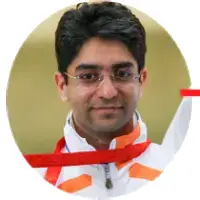
Early Life and the Spark of Passion
Family background and upbringing
Born on September 28, 1982, in Dehradun, Abhinav Bindra grew up in a privileged Punjabi Sikh Khatri family that stood by him throughout his early years. His family’s history runs deep – he’s a direct descendant of Hari Singh Nalwa, the Commander-in-Chief of the Sikh Khalsa Army through his mother. This connection to a great military leader seemed to hint at the discipline and leadership he would later show in sports. He started his education at the prestigious Doon School in Dehradun and later moved to St. Stephen’s School in Chandigarh. He then studied business administration at the University of Colorado Boulder while pursuing his shooting career.
The supportive environment at home played a key role in developing his talent. His parents spotted his potential early and backed his sporting dreams. Unlike many athletes who lack family support, Bindra was lucky. His parents gave him both emotional and financial backing. Their steadfast dedication showed when they built an indoor shooting range at their Patiala home, giving him endless chances to practice. Having access to training facilities at home gave him a huge advantage over other young Indian athletes.
First exposure to shooting
Abhinav Bindra’s fascination with shooting started when he was very young. He first got interested after watching shooters compete on TV, a moment that set him on the path to Olympic glory. Though India didn’t have a strong shooting tradition then, young Bindra was drawn to the sport’s precision and mental discipline. Dr. Amit Bhattacharjee became his mentor, and Lt. Col. Dhillon served as his first coach. These early mentors helped shape his natural talent and enthusiasm into structured training.
At merely 15 years of age, Bindra did what many seasoned athletes dream of – he represented India at an international event. He became India’s youngest participant at the 1998 Commonwealth Games in Kuala Lumpur. This early international exposure gave him great competitive experience that helped throughout his career. The competition showed him what world-class performance looked like and taught him about handling pressure at elite levels. On top of that, competing in the 2000 Sydney Olympics as India’s youngest participant helped him understand high-pressure environments even better.
Training in Germany and early discipline
Determined to reach world-class standards, Bindra knew India didn’t have the advanced facilities and specialized coaching he needed to compete with the world’s best. This pushed him to train abroad, mainly in Germany, where he worked with famous coaches Heinz Reinkemeier and Gabriele Buhlmann. His time in Germany exposed him to modern techniques, equipment, and training methods not available in India then. The coaching he got there improved his technical skills and introduced him to European training philosophies that focused on precision and mental preparation.
Bindra’s approach to training showed incredible discipline from the start. He spent hours each day practicing, conditioning his body, and preparing mentally. What set him apart was his careful attention to detail and understanding that excellence comes from consistent practice rather than occasional intense training. His coaches often noted how well he stayed focused during long training sessions – a skill that proved valuable in competitions. His training went beyond regular shooting practice to include mental conditioning and exercises that helped boost stability and control, which were vital for the 10-meter air rifle event.
The foundation for Olympic success came from these early experiences. Bindra’s complete preparation included practicing every competition detail, from walking to the shooting area in ankle-high boots to taking his stance in practice finals with Buhlmann making announcements like in real events. His attention to detail was extreme – just a week before the Beijing Olympics, he took commando training to build mental toughness. These unique approaches to preparation showed he knew that Olympic success needed more than just technical skill – it required exceptional mental strength and adaptability.
Initial Struggles on the Global Stage
1998 Commonwealth Games debut at age 15
Abhinav Bindra made history before winning any medals. The 15-year-old became the youngest Indian shooter to represent his country at the 1998 Commonwealth Games in Kuala Lumpur. His early debut showed his exceptional talent and built a strong base for his competitive career. He didn’t win a medal, but the experience gave him valuable exposure to high-level international competition during his formative years.
His early start in international competition shaped his development greatly. Sports psychology experts often say these early experiences help young athletes learn about elite competition firsthand. Bindra’s international exposure “paved the way for future excellence”. The Commonwealth Games taught him about pressure, atmosphere, and high standards that helped him throughout his career.
2000 Sydney Olympics disappointment
The Sydney Olympics marked a big milestone in Bindra’s young career. At 17, he became the youngest Indian participant at the 2000 Summer Olympics. This showed his quick rise in the sport. He scored 590 in the qualification round and placed 11th overall. The score left him just short of making it to the finals.
Bindra later shared that Sydney held special meaning despite the result. “For me Sydney Olympics is special, I finished 10th or 11th at those games. My performance at Sydney gave me the belief that one day perhaps I can go and win the gold medal (at the Olympics)”. He turned disappointment into motivation. Instead of feeling discouraged, he used this experience to boost his ambition and improve his competitive approach.
Sydney taught Bindra a lot about Olympic success. He later said, “It takes about eight years to develop as an Olympic athlete, very few athletes actually who go there win medal in their first Games”. This long-term view helped him understand his journey better. He added, “10,000 athletes go and compete at an Olympic Games, only 300 go back with a gold medal, the number is very, very less”. This realistic viewpoint shaped how he trained methodically.
2004 Athens Olympics and missed opportunity
Athens brought both progress and heartbreak for Bindra. He entered with more experience and skill, performing brilliantly in qualifying. He broke the Olympic record in the 10m air rifle event during qualifications. His score of 597 out of 600 points put him in third place, behind only Qinan Zhu (599) and Li Jie (598).
The finals turned out devastating. Bindra scored just 97.6 points—lowest among all finalists. This poor performance dropped him from third to seventh place, leaving him without an Olympic medal again. His contrasting performances showed the intense pressure of Olympic competition.
People questioned his ability to handle pressure after Athens. These setbacks became great learning experiences. His technical excellence in qualifying proved his skill, while his finals struggles showed where he needed mental strength. These early Olympic experiences, though tough at the time, laid the groundwork for one of India’s greatest sporting achievements.
The Road to Redemption: 2006 World Championship
Overcoming a career-threatening back injury
The devastating setback hit Abhinav Bindra right after his Athens Olympics disappointment. A severe back injury left him completely unable to move. He couldn’t lift a rifle for a whole year, which seriously disrupted his preparation for the 2008 Summer Olympics. Medical tests revealed that years of shooting and lifting his 5kg gun had damaged his spine badly. His Lumbodorsal vertebrae showed a partly overstretched and ruptured ligament. Doctors rated his condition between ‘moderate to severe’.
The treatment plan needed careful thought since surgery would keep him away from competition for at least a year – not an option for someone with Olympic dreams. His doctors created a detailed six-month recovery program that included ice massages, medicine, and a special cast to support his spine. His medical team’s most important advice was to change his shooting technique. They suggested he move his center of gravity from his spine to his legs to ease the strain on his injury. During these tough times, Bindra developed his personal motto: “knowing how to suffer and endure pain”. He later said that “at the time you accept pain and knowing how to endure pressure, the goal becomes clear”.
Winning gold at the 2006 ISSF World Championships
The triumphant comeback concluded at the 2006 ISSF World Championships in Zagreb, Croatia. Bindra did what no Indian rifle shooter had done before. He grabbed the gold medal in the 10-meter air rifle event with an impressive 699.7 (597+102.7). He became the first Indian to win a World Championship gold medal in rifle shooting. One sports writer noted that “the whole shooting world started paying attention to his talent” after this amazing achievement.
The historic significance of this win meant more than personal comeback. Bindra became the first Indian rifle shooter to win a World Championship competition. He broke new ground for Indian shooters worldwide. His performance showed incredible mental strength – he competed at the highest level while managing a serious back problem. This feat was remarkable after his disappointments at Sydney and Athens. It proved his resilience and determination to overcome physical limits and past setbacks.
Qualifying for the 2008 Olympics
The golden ticket to Beijing came straight from Bindra’s World Championship win. His victory automatically qualified him for the 2008 Olympic Games. This meant he would get his third shot at Olympic glory, but things were different this time. Unlike before, Bindra entered as a reigning World Champion – a mental edge that boosted his confidence.
The strategic preparation after qualifying focused on both physical recovery and mental training. Bindra knew Beijing might be his best shot at an Olympic medal after coming home empty-handed from Sydney and Athens. Securing his Olympic spot early let him focus completely on perfecting his technique and building mental strength without qualifying pressure. The time between his World Championship win and Beijing proved vital in his growth as an elite athlete. These months laid the groundwork for what would become India’s greatest individual Olympic moment.
Olympic Glory in Beijing 2008
Performance in qualification and final rounds
The qualification round at the 2008 Beijing Olympics saw Abhinav Bindra move ahead with confidence while his teammate Gagan Narang couldn’t make it through. Bindra’s experience as a four-time Commonwealth Games gold medallist showed throughout the preliminary stage. His preparation faced a major setback right before the finals when he found his gun sight (aiming device) was not lined up during the five-minute sighting period. He worked quickly until the last second and made significant adjustments just before the competition began.
The final showdown proved Bindra’s mental strength. He stayed focused during the medal round and shot scores of 10 or higher. Athens 2004 Olympic gold medallist Zhu Qinan had to settle for silver as Bindra took the lead. Finland’s Henri Häkkinen led the qualification and kept pace with Bindra until the final shot but fell short with a 9.7. Bindra responded with an almost perfect 10.8 on his last shot.
Historic gold medal moment
The culmination of Bindra’s trip came when his total score of 700.5 points earned India’s first individual Olympic gold medal. He made history on August 11, 2008, as India’s first Olympic champion in shooting and the country’s first individual gold medalist at the Olympics. Bindra’s first reaction was simple: “Relief flooded my brain. It’s the first emotion that releases as four years of investment have been confirmed”.
The winning performance exceeded all expectations. “Those 10 shots, they were magical. Stability, timing, execution, they were the best shots of my life… I knew: I could not shoot better,” Bindra said later. The final scores placed Bindra at the top with 700.5 points, while China’s Zhu Qinan scored 699.7 and Finland’s Henri Häkkinen finished with 699.4.
Impact on Indian sports and national pride
The national reaction swept across India after Bindra’s gold medal win. Shooting nationals drew about 200 participants before 2008, but this number grew to around 10,000 afterward. This sharp rise showed how Olympic success could change participation levels in what was once a niche sport in India.
The legacy effect reached beyond the shooting arena. Bindra’s achievement sparked a new era in Indian sports development. Young athletes found inspiration to chase their Olympic dreams. India’s flag rose high and its national anthem played for the first time at an individual Olympic medal ceremony. Bindra’s Olympic triumph still lights the way for future Indian athletes, showing that Olympic glory comes through hard work and the right preparation.
Beyond the Podium: Legacy and Contributions
Abhinav Bindra’s incredible story shows his perseverance and mental strength. He started as a 15-year-old Commonwealth Games participant and became an Olympic champion, proving how failure builds the foundation for future success. Many athletes would have given up after facing his setbacks. In spite of that, every disappointment—from his near miss in Sydney to the heartbreak in Athens—ended up shaping his historic achievement in Beijing.
The gold medal wasn’t his only achievement. His most important contribution changed India’s sporting world forever. Indian athletes competing individually against global powerhouses once saw Olympic glory as unreachable. His breakthrough shattered this mental barrier completely. A new generation of Indian athletes now faces international competition with real belief instead of just hope.
Without doubt, Bindra’s influence reaches way beyond his personal achievements. The shooting sport saw dramatic growth—from 200 national aspirants before 2008 to about 10,000 afterward—showing how deeply his success affected the sport. His methodical training approach, focus on mental conditioning, and openness to welcome new techniques set new standards for athletic preparation in India.
Abhinav Bindra’s story remains powerful because it captures the essence of sports—a tale of early promise, crushing setbacks, careful redemption, and final triumph. Many athletes win medals, but few inspire entire nations. His experience from failure to Olympic glory continues to appeal because it proves that true champions aren’t made in victory moments but through years of fighting against adversity.
FAQ
Who is Abhinav Bindra’s wife?
As of now, Abhinav Bindra is not married and has not publicly announced any details regarding his relationship status. He has always maintained a private personal life, focusing primarily on his sports career and business ventures. Bindra is known for his dedication to shooting and later to his entrepreneurial efforts in sports science and rehabilitation. While there have been speculations about his personal life, he has not confirmed any details regarding a wife or marriage plans.
How many gold medals has Abhinav Bindra won?
Abhinav Bindra won a historic gold medal at the 2008 Beijing Olympics in the 10m Air Rifle event. This victory made him the first Indian to win an individual Olympic gold medal. Apart from this, he has also won multiple medals in the Commonwealth Games, Asian Games, and World Championships. However, his Olympic gold remains his most significant achievement, as it ended India’s long wait for an individual gold medal at the prestigious sporting event.
What is Abhinav Bindra’s age?
Abhinav Bindra was born on September 28, 1982. As of 2025, he is 42 years old. Despite retiring from competitive shooting, he remains actively involved in the sports industry, promoting excellence in training and rehabilitation for athletes. Bindra’s experience as a professional shooter and Olympic champion continues to inspire young athletes, and he frequently engages in initiatives that enhance sports science and performance optimization in India.
What is Abhinav Bindra’s net worth?
Abhinav Bindra’s estimated net worth is around $10 million. His wealth comes from various sources, including endorsements, business ventures, and investments in sports technology. After retiring from professional shooting, he has focused on promoting sports science through the Abhinav Bindra Foundation and High-Performance Training Centers. Additionally, he has worked with various organizations, offering expertise in sports training and rehabilitation. His financial success is a result of his dedication to both sports and business.
How many Olympic medals has Abhinav Bindra won?
Abhinav Bindra won one Olympic medal in his career – a gold medal in the 10m Air Rifle event at the 2008 Beijing Olympics. This achievement was historic, as it made him the first Indian to win an individual gold at the Olympics. He also participated in five consecutive Olympic Games (2000, 2004, 2008, 2012, and 2016), making him one of India’s most experienced Olympians. His journey remains an inspiration for aspiring Indian shooters.
What book has Abhinav Bindra written?
Abhinav Bindra co-authored his autobiography, A Shot at History: My Obsessive Journey to Olympic Gold, which was published in 2011. The book gives an in-depth look at his struggles, discipline, and dedication to shooting. It highlights his mental and physical challenges in pursuit of Olympic success. The book is widely appreciated for its honest and insightful narration, offering readers a behind-the-scenes view of what it takes to reach the highest level in sports.
Abhinav Bindra is from which state?
Abhinav Bindra hails from Punjab, India. He was born and raised in Dehradun, Uttarakhand, but his family belongs to Punjab. Throughout his career, he has represented India on international platforms, making his home state proud. After retirement, he has continued contributing to sports development in India, particularly in Punjab and other regions, through initiatives that promote sports science and athlete training.
Who is Abhinav Bindra’s father?
Abhinav Bindra’s father is Dr. Apjit Bindra, a well-known businessman. His father has played a crucial role in supporting his shooting career from an early age, even setting up a world-class shooting range at their home to help him train. The strong financial and emotional support from his father and family allowed Bindra to focus entirely on his sport, ultimately leading to his historic Olympic gold medal win.
